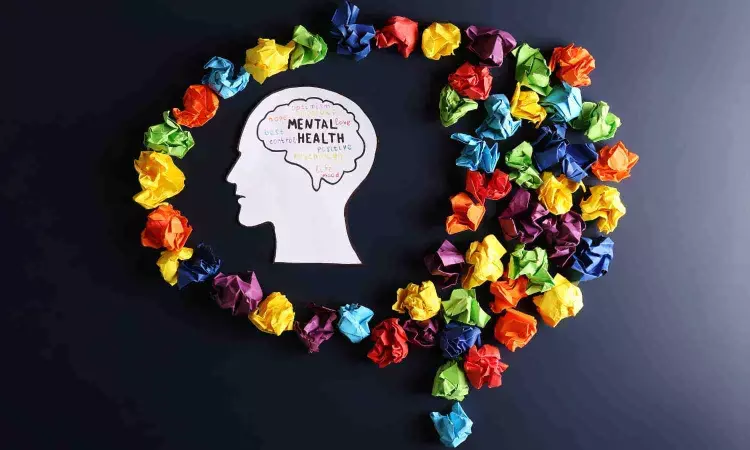- Home
- Medical news & Guidelines
- Anesthesiology
- Cardiology and CTVS
- Critical Care
- Dentistry
- Dermatology
- Diabetes and Endocrinology
- ENT
- Gastroenterology
- Medicine
- Nephrology
- Neurology
- Obstretics-Gynaecology
- Oncology
- Ophthalmology
- Orthopaedics
- Pediatrics-Neonatology
- Psychiatry
- Pulmonology
- Radiology
- Surgery
- Urology
- Laboratory Medicine
- Diet
- Nursing
- Paramedical
- Physiotherapy
- Health news
- Fact Check
- Bone Health Fact Check
- Brain Health Fact Check
- Cancer Related Fact Check
- Child Care Fact Check
- Dental and oral health fact check
- Diabetes and metabolic health fact check
- Diet and Nutrition Fact Check
- Eye and ENT Care Fact Check
- Fitness fact check
- Gut health fact check
- Heart health fact check
- Kidney health fact check
- Medical education fact check
- Men's health fact check
- Respiratory fact check
- Skin and hair care fact check
- Vaccine and Immunization fact check
- Women's health fact check
- AYUSH
- State News
- Andaman and Nicobar Islands
- Andhra Pradesh
- Arunachal Pradesh
- Assam
- Bihar
- Chandigarh
- Chattisgarh
- Dadra and Nagar Haveli
- Daman and Diu
- Delhi
- Goa
- Gujarat
- Haryana
- Himachal Pradesh
- Jammu & Kashmir
- Jharkhand
- Karnataka
- Kerala
- Ladakh
- Lakshadweep
- Madhya Pradesh
- Maharashtra
- Manipur
- Meghalaya
- Mizoram
- Nagaland
- Odisha
- Puducherry
- Punjab
- Rajasthan
- Sikkim
- Tamil Nadu
- Telangana
- Tripura
- Uttar Pradesh
- Uttrakhand
- West Bengal
- Medical Education
- Industry
Neonates admitted at NICU more likely to experience emotional difficulties during childhood: Study

A recent study published in the recent issue of BMJ Paediatrics Open journal revealed that children admitted to Neonatal Units (NNUs) after birth are at a higher risk of developing emotional and peer-related difficulties that persist into adolescence. The research which was a part of the Millennium Cohort Study, followed a total of 14,013 children from infancy to age 17.
The study found that approximately 9.1% of participants had been admitted to an NNU within the first 9 months of life. These children displayed a statistically significant increase in emotional challenges (mean difference 0.13, p=0.003) and difficulties forming peer relationships (mean difference 0.11, p=0.010) when compared to children who did not require NNU care. Emotional problems included increased anxiety, sadness, and trouble regulating emotions.
However, there was no strong association between NNU admission and conduct problems or hyperactivity symptoms, suggesting that behavioral regulation and impulse control remained unaffected by early neonatal experiences.
The study employed data from parent-reported Strengths and Difficulties Questionnaires (SDQs) at multiple developmental stages: 3, 5, 7, 11, 14, and 17 years. This study utilized growth curve models to track the children's trajectories of emotional and behavioral development over time after adjusting for confounding factors such as birth weight, gestational age, and socio-economic background.
Also, the findings highlight the need for a calm and supportive environment in NNUs, with recommendations for increasing parental involvement and providing mental health support both during and after neonatal care. Early interventions for children identified as high-risk could help reduce these long-term effects by offering them better chances of thriving socially and emotionally as they grow.
This study illuminated the critical impact of early-life experiences on child development. Overall, this emphasized that while NNUs play a crucial role in saving lives, care practices should evolve to consider not just physical health but also the mental and emotional well-being of vulnerable newborns. As more parents become aware of these potential challenges, clinicians may find new opportunities to improve outcomes through tailored support services for NNU-admitted children and their families.
Reference:
Nandakumar, M., Lewis, G., Lewis, G., Solmi, F., & Srinivasan, R. (2025). Neonatal unit admission and offspring mental health trajectories across childhood and adolescence: a nationally representative UK cohort study. BMJ Paediatrics Open, 9(1), e003092. https://doi.org/10.1136/bmjpo-2024-003092
Neuroscience Masters graduate
Jacinthlyn Sylvia, a Neuroscience Master's graduate from Chennai has worked extensively in deciphering the neurobiology of cognition and motor control in aging. She also has spread-out exposure to Neurosurgery from her Bachelor’s. She is currently involved in active Neuro-Oncology research. She is an upcoming neuroscientist with a fiery passion for writing. Her news cover at Medical Dialogues feature recent discoveries and updates from the healthcare and biomedical research fields. She can be reached at editorial@medicaldialogues.in
Dr Kamal Kant Kohli-MBBS, DTCD- a chest specialist with more than 30 years of practice and a flair for writing clinical articles, Dr Kamal Kant Kohli joined Medical Dialogues as a Chief Editor of Medical News. Besides writing articles, as an editor, he proofreads and verifies all the medical content published on Medical Dialogues including those coming from journals, studies,medical conferences,guidelines etc. Email: drkohli@medicaldialogues.in. Contact no. 011-43720751


